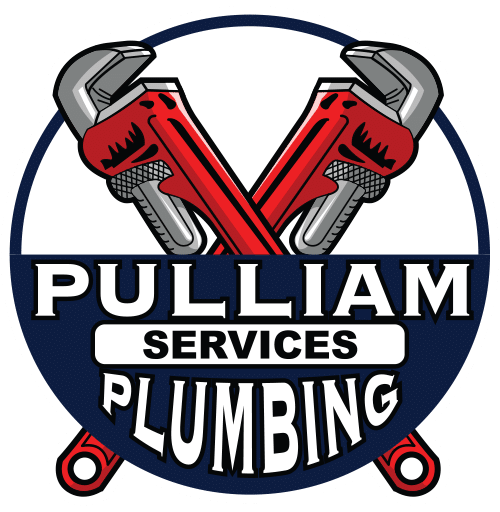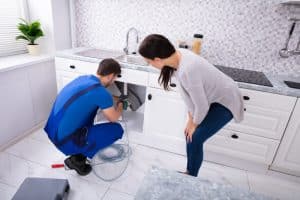Clogged drains are a common household problem that can lead to a host of issues, from unpleasant odors to slow draining water. If left unchecked, they can even cause water damage. Understanding how to keep your drains clean is essential for maintaining a healthy plumbing system. Luckily, there are easy and effective ways to tackle this problem, many of which you can do yourself at home.
One of the first steps in maintaining clean drains is recognizing the signs that they need attention. Catching these signs early can prevent small problems from becoming larger, more expensive ones. After identifying a problem, using natural cleaning solutions can often clear minor clogs without the need for harsh chemicals. These solutions are not only effective but also environmentally friendly.
Using the right tools and techniques can make a big difference in your drain cleaning efforts. From plungers to plumbing snakes, having the right equipment on hand can save you time and hassle. Beyond just cleaning, taking preventative measures can keep your drains running smoothly for longer. Simple steps like being mindful of what goes down the drain can make a world of difference.
In this article, we’ll cover the essential tips for cleaning your drains effortlessly. From identifying problems to using natural solutions and the right tools, you’ll be well-equipped to keep your drains clear and functional.
Identifying Signs Your Drains Need Cleaning
Knowing when your drains need cleaning is crucial to prevent serious plumbing issues. One of the most obvious signs is slow draining water. If you notice that water is taking longer to disappear from your sink, tub, or shower, there is likely a blockage forming. This can be caused by hair, soap scum, food particles, or other debris stuck in the pipes.
Another sign to watch out for is unusual odors coming from your drains. A persistent bad smell can indicate a buildup of waste and bacteria in the pipes. This is common in kitchen sinks where food particles and grease can accumulate over time. If you detect a foul odor, it’s probably time to clean your drains.
Gurgling noises are also a red flag. These sounds occur when air is trapped in the pipes due to a blockage. If you hear gurgling when you run water or flush the toilet, it means the drain isn’t functioning properly and needs attention. Being aware of these signs can help you address minor clogs before they become major problems.
Natural Drain Cleaning Solutions
Using natural drain cleaning solutions is an effective and eco-friendly way to clear minor clogs and maintain clean drains. One of the simplest methods involves using baking soda and vinegar. Start by pouring a half cup of baking soda down the drain. Follow this with a half cup of white vinegar. Let the mixture sit for about 15 minutes. During this time, it will fizz and break down the buildup. Finally, flush the drain with hot water to clear any remaining debris.
Another natural option is using salt and boiling water. Pour a half cup of salt down the drain, then follow with a kettle of boiling water. The hot water helps to dissolve grease and other sticky substances, while the salt acts as a mild abrasive to scrub the inside of the pipes. This method is particularly useful for kitchen sinks where grease buildup is common.
For tougher clogs, you can try using a plunger combined with a natural solution. First, use the plunger to create suction and loosen the clog. Then, apply the baking soda and vinegar or salt and boiling water method. These natural solutions are gentle on pipes and the environment, making them a great first step in keeping your drains clean.
Tools and Techniques for Effective Drain Cleaning
Having the right tools on hand can make a big difference in how easily you can clean your drains. A plunger is a must-have for every household. It’s great for tackling minor clogs in sinks, tubs, and toilets. Make sure to use a sink plunger for sinks and a toilet plunger for toilets; they are designed differently and are more effective for their specific uses.
A plumbing snake, also known as a drain auger, is another useful tool. This flexible, long tool can reach deeper clogs that a plunger can’t handle. Insert the snake into the drain and turn the handle to push it through the blockage. This tool is especially handy for stubborn clogs caused by hair or other debris.
For more serious clogs, a wet/dry vacuum can be effective. Set the vacuum to liquids mode, create a tight seal around the drain, and use the vacuum to pull out the blockage. This method works well for large and heavy clogs that cannot be removed by a snake or plunger.
For grease buildup, a mixture of dish soap and hot water can help break down the grease. Squeeze a generous amount of dish soap into the drain, followed by a pot of boiling water. The hot water and soap work together to dissolve and flush away the grease.
Preventative Measures to Keep Your Drains Clean
Taking preventative measures can keep your drains in good condition and minimize the need for major cleaning. One effective step is to use drain guards or strainers. These simple devices sit over the drain and catch food particles, hair, and other debris before they can enter the pipes. Clean the guard regularly to ensure it remains effective.
Be mindful of what goes down your drains. Avoid pouring grease, coffee grounds, and large food scraps into the kitchen sink. These items can easily cause blockages. Instead, dispose of them in the trash or compost. In the bathroom, avoid flushing anything other than toilet paper. Items like wipes, cotton balls, and feminine hygiene products can create serious clogs.
Regular maintenance can also help. Once a week, flush your drains with hot water to keep them free of buildup. You can also use a natural solution like baking soda and vinegar every month to maintain cleanliness. Simply pour a half cup of baking soda down the drain, follow with a half cup of vinegar, let it sit for 15 minutes, and flush with hot water.
Conclusion
Keeping your drains clean doesn’t have to be a daunting task. With the right knowledge and tools, you can easily address common issues and maintain a healthy plumbing system. Recognizing the signs that your drains need cleaning, using natural solutions, and employing the proper tools can make a big difference. Taking preventative steps will ensure your drains remain clear and functional, preventing the frustration of clogs and slow draining water.
If you encounter a problem that you can’t fix, don’t hesitate to seek professional help. Contact Pulliam Plumbing for expert clogged drain cleaning services and ensure your home’s plumbing runs smoothly all year round.




